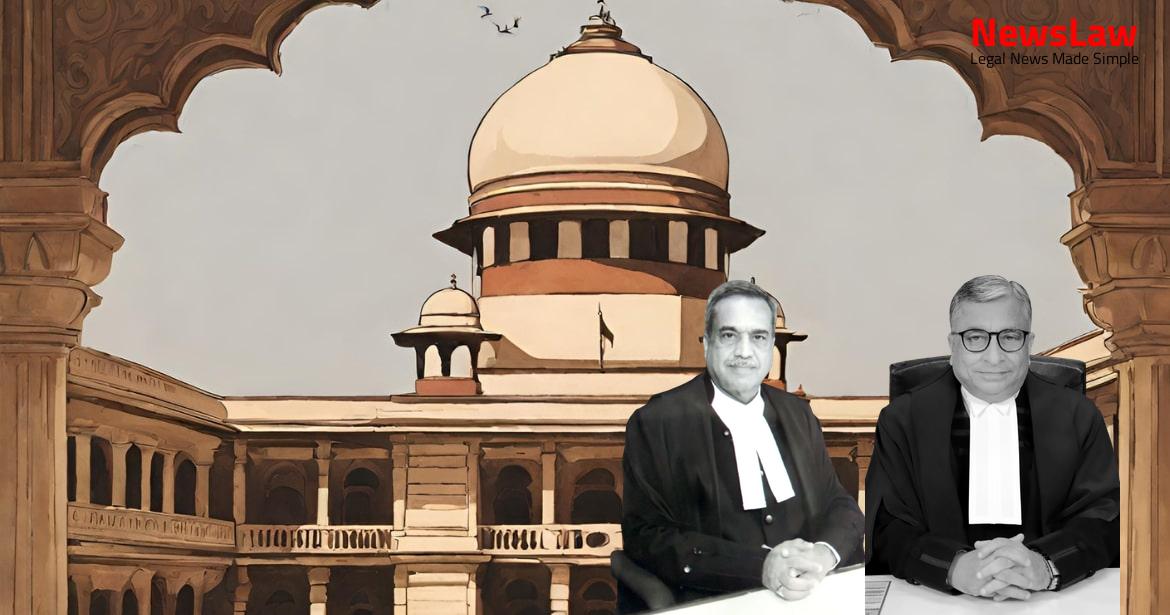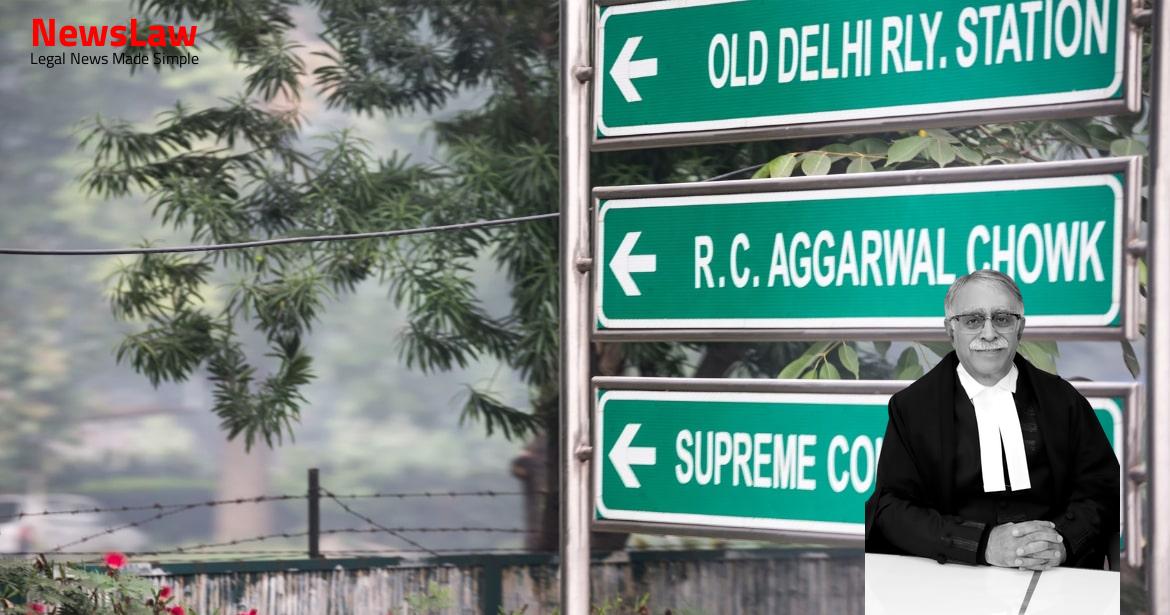In a recent legal case, the court’s in-depth analysis of the NDPS Act led to the conviction being upheld. The court focused on the reliability of police witnesses, adherence to procedural rules, and the significance of compliance with the law. The lack of independent witnesses did not weaken the prosecution’s case. Stay tuned for more insights into this fascinating legal analysis.
Facts
- Substance seized was found to be Ganja.
- Accused were informed about Section 50 of the NDPS Act and their search options.
- 20kg of Ganja was found in a sack on the accused’s motorcycle.
- Panchnama of seizure was made.
- Accused and co-accused were chargesheeted under the NDPS Act.
- Accused pleaded not guilty and stood trial.
- Samples of the Ganja were sent for testing and confirmed to be Ganja.
- Further investigation was conducted by Police Inspector Ashish Shukla.
- Witnesses were examined to prove the case against the accused.
- Accused appealed against conviction under Section 20(b)(ii)(B) of the NDPS Act.
- Main submission was that the complainant and investigator ASI J.K. Sen (PW4) being the same, accused should be acquitted.
- High Court dismissed the appeal and upheld the conviction stating that further investigation was carried out by PW5 – Ashish Shukla, not PW4.
- Citing the case of Mohan Lal, the High Court held that the complainant-investigator being the same did not affect the case due to the change in investigating officer.
- Multiple other submissions were made before the High Court by the accused.
Also Read: Transfer of Writ Petitions for Chartered Accountants’ Tax Audit Guidelines
Arguments
- The appellant’s counsel argues against the conviction based solely on police officer testimonies due to non-compliance with mandatory provisions of Section 42 of the NDPS Act.
- Various discrepancies in the case are pointed out, such as the inconsistency in the motor cycle number on different documents and the lack of safe custody for seized samples.
- The appellant’s counsel requests a lenient view on the sentence, highlighting the lack of minimum sentence provision in Section 20(b)(ii)(B) of the NDPS Act.
- Emphasis is placed on the significance of independent witnesses turning hostile not necessarily weakening the prosecution’s case.
- Citing relevant legal precedents, the appellant’s counsel argues that the prosecution witnesses are reliable and trustworthy, supporting the case effectively.
- The prosecution opposes the appeal, providing evidence of recovery marked as ‘B1’ and ‘B2’ from the accused, which was sent for forensic analysis.
- Both lower courts are commended for correctly convicting the accused under the NDPS Act, with proper compliance of procedural requirements established.
- Reference is made to a recent court decision to challenge a previous ruling’s validity in the context of the NDPS Act.
- Ownership of the vehicle is not in question, the focus is on the commission of an offence under the NDPS Act.
- The prosecution has successfully proven the commission of an offence under the NDPS Act by the accused individuals.
- Lack of proof of ownership or subsequent recovery of the motor cycle does not invalidate the prosecution’s case as the accused were caught with contraband in the vehicle.
Also Read: Analyzing Interference with Acquittal in Legal Conviction Case
Analysis
- The police witnesses are found to be reliable and trustworthy based on their deposition.
- Compliance with the procedures under Sections 42 and 55 of the NDPS Act has been established and proven.
- Samples seized from Rizwan were sent to the FSL and their handling was confirmed.
- The issue of the investigating officer also being the FIR recorder does not apply in this case as the investigation was conducted by a different officer.
- The prosecution successfully proved the case against the accused by examining several witnesses.
- There was a clerical error in the numbering of samples in the memorandum of the Superintendent of Police, but it does not affect the case.
- The prosecution’s case was supported by trustworthy police witnesses, and reliance on their deposition by the courts was justified.
- The ownership of the vehicle was not crucial to proving the case under the NDPS Act.
- The testimony of police officials does not require corroboration by independent witnesses to be considered valid and reliable.
- Official witnesses should not be distrusted solely based on their official status.
- Actions of police officers should not be approached with initial distrust.
- The lack of examination of independent witnesses does not automatically mean that the accused was falsely implicated.
- Ownership of the vehicle not being established and the vehicle not being recovered subsequently does not vitiate the trial.
- The prosecution successfully proved the recovery of contraband articles from the accused on the spot.
- The courts below rightly convicted the accused for the offence under Section 20(b)(ii)(B) of the NDPS Act.
- The sentence imposed by the Special Court, confirmed by the High Court, is considered lenient, as the maximum sentence under the NDPS Act for the offence is more severe.
- The prayer for a lesser punishment than the imposed sentence is rejected, as the Special Court had already taken a lenient view in sentencing.
Also Read: Judicial Review on Sentence and Compensation in Criminal Case
Decision
- The conviction of the accused under Section 20(b)(ii)(B) of the NDPS Act is upheld.
- The appeal is deemed to fail and is dismissed.
Case Title: RIZWAN KHAN Vs. THE STATE OF CHHATTISGARH (2020 INSC 543)
Case Number: Crl.A. No.-000580-000580 / 2020



